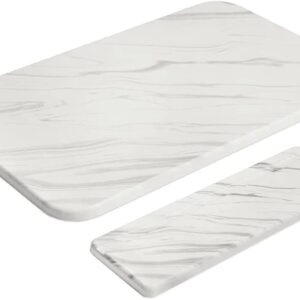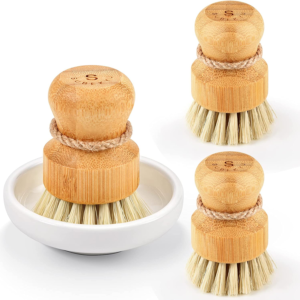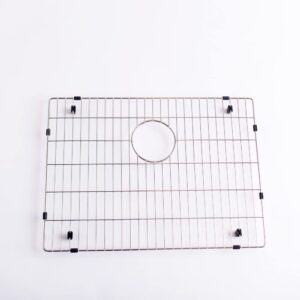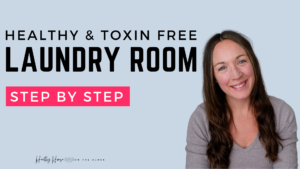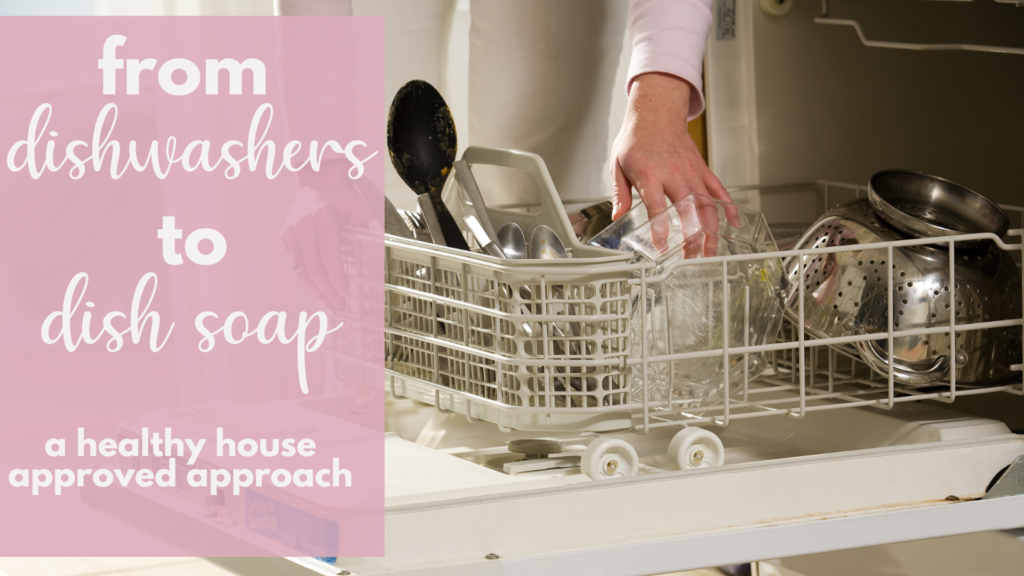
INTRO:
Washing dishes is one of those things we mindlessly do multiple times a day — whether it’s quickly popping something in the dishwasher or it’s tackling a mountain of bowls and spoons for an afternoon of baking. Most of us don’t put too much thought into HOW we do the dishes — we just get them done.
But what I’ve learned over the past few years is that while there are some things about dishwashers that will always be the slightest bit toxic, you can actually choose a lower toxin, higher quality dishwasher when the time is right to reduce toxins in your home.
And while we’re on the topic, let’s take a look at all the extras that go along with dishwashers that we might be bringing into our home. Things like soaps and detergents often have chemical toxins we aren’t aware of due to just lack of information or greenwashing.
Let’s do better in the kitchen from here on out and cut out unnecessary toxins and also plan ahead for bigger ways to reduce toxins with appliance purchases in the future. It’s worth it to know these things and minimize toxins wherever you can.

KNOW BETTER DO BETTER APPROACH
One of my favorite phrases when it comes to creating a low toxin home is once you know better, you do better. Meaning, it’s okay that you didn’t know about toxins before and you brought them into your home. We can’t focus on the past and wallow in it.
But now that you do know better and you know about more toxins and you know about what to avoid, it’s time to make better choices and do better.
Another thing I really think you have to keep in mind is that reducing toxins in your home isn’t about tossing things you just purchased or taking out perfectly good items and appliances. Not only is that wasteful, but super costly.
Instead, plan ahead for the future, which is exactly what this post is going to help you do. And in the meantime, change what matters the most and what is the least expensive (and simplest) to change. So when it comes to dishwashing, that’s probably swapping out your soaps and detergents first.
And when you’re ready, you can look into a lower toxin dishwasher — this is kind of like a healthy home bonus item. It’s not the absolute most important thing to be lower toxin in your home, but if you can do it, it’s a great addition.
And remember with all these changes, you definitely get what you pay for. Often quality ingredients and quality materials are more expensive, simply because they are higher quality. If you’re buying the cheapest thing out there, you’re probably getting what you pay for.

TOXIN FREE DISHWASHERS (FOR WHEN YOU’RE READY TO BUY)
So when you’re ready to get a new dishwasher, here are some of the things you should look for:
Stainless Steel Tub: Stainless steel is a naturally toxin free material, and in a dishwasher it can help reduce mildew, mold and bacteria from forming. It’s also a great way to avoid a large amount of plastic that will also get heated to very hot temperatures in your dishwasher.
Nylon Coated Racks: Racks that are coated in nylon are much preferred in comparison to PVC racks. PVC, polyvinyl chloride is a toxin that should be avoided due to its disruption of the endocrine system and its developmental impact on kids. (STUDY).
RoHS Certified: This is kind of a bonus — if you can find a dishwasher that you like that is also RoHS certified, it means that it’s been third party verified to be free from a group of hazardous substances (lead is a big one on the list). You can still get a lower toxin dishwasher that doesn’t have this certification.
Meets EU Standards: One of the things I absolutely love to look for is products that are manufactured in European Countries. So often the US has much lower standards when it comes to the regulation of toxins in our items, and so looking to EU Standards can actually eliminate or reduce toxins in big ways. Some of the higher quality dishwashers are manufactured in Germany, which is great when you’re on the hunt for low toxin dishwasher.
But there will be some toxins: Let’s be honest about this, there is no toxin free dishwasher on the market. Nor will there likely ever be for that matter. Focus on finding the lowest toxin dishwasher you can. And another big thing you can look at is finding a dishwasher where those toxic components are fully encapsulated, meaning they won’t be able to emit vapors or fumes into your home. But the truth is there will be some sort of plastic or heavy metal in these appliances, so we just limit the toxins as best we can.

Healthy House Favorites:
Blomberg is an RoHS Certified Company, doing all their manufacturing in Germany. They’re dishwashers have stainless steel tubs and nylon racks, which I love
Miele does have the Prop 65 Warning, but they have confirmed that all the materials that are potentially toxic are fully enclosed and encapsulated, meaning they will not off gas. They’re manufactured in Germany and have stainless steel tubs and nylon racks.
Beko is also manufactured in Europe, and shares the same parent company as Blomberg. They utilize ionization to remove odors and also contain the stainless steel tub and nylon rack components.

DISHWASHER CARE
What many of us forget is that your dishwasher actually needs it’s own cleaning from time to time. Here’s how to care for your dishwasher and maintenance that can be done to make it last and to keep it free from toxins:
Rinse Your Dishes: Those commercials where they put in dishes caked on with food are the WORST. Rinse those dishes to the best of your ability before loading your dishwasher. While most of us think we can put anything down any drain, your kitchen drains were never intended for food waste. And your dishwasher is in that same category.
Clean the Seals: The sales on the sides of your door and tub are notorious for collecting sludge and gunk. Be sure to wipe them off with a towel from time to time. If you’re going to clean them with a cleaner, make sure it’s not an acidic solution. Otherwise, these rubber seals can begin to deteriorate and leak over time.
Clean Your Filter: In the bottom of your dishwasher tub, there is often a round filter that catches food and debris. Take that out and wash it off in the sink. Not only will it help your dishwasher run and drain more efficiently, but it will also reduce bacteria that could be growing in there too.
Scrub the Tub: Sometimes the tub of your dishwasher needs a good cleaning too. Stainless steel tubs will shine up beautifully with just a little baking soda and water to make a paste. For the most part, food doesn’t adhere to stainless steel very well, but it’s not a bad idea to clean it out from time to time. Because vinegar is so acidic, I don’t recommend using this in your dishwasher.
Leave it Open to Dry: Anytime you empty your dishwasher, it’s a good idea to leave the door open (overnight is best) to dry out completely. We want all the water and moisture to evaporate completely in between washes to avoid mildew and mold in your dishwasher.

TOXIN FREE DISHWASHING DETERGENT, SOAP & RINSE AIDS
Even more than a toxin free dishwasher, I encourage you to focus on your dish soaps and dish detergents. This is the case for several reasons. First, you likely use these things every day, if not multiple times per day. Second, the residue from these products can get left behind, meaning they become ingested by anyone eating or drinking off of the dishes. And finally, we’re touching these products while we wash dishes, meaning we’re absorbing the toxins into our skin.
As a quick rundown, here are the toxins you want to avoid when it comes to any dish detergent, dish soap or rinse aid:
- Fragrance (opt for a free and clear option that is without fragrance)
- Colorants (the only reason colors are added is for a appearance and they can contain both heavy metals or synthetic dyes)
- Preservatives (toxins like benzothiazolinone and methylisothiazolinone are known allergens)
- SLS and SLES (easily absorbed through the skin has been known to cause rashes and allergic reactions)

IS HAND WASHING BETTER THAN DISHWASHERS?
Here’s another question to consider, is handwashing better than running your dishwasher? Most of the time, I say no, but there are certain circumstances that could make it healthier or more energy efficient.
It’s important to pay attention to WHAT you’re washing. Some materials are recommended to be hand washed only. And usually it’s for a good reason. Enamel coated stainless steel water bottles are a perfect example. These should be hand washed to avoid chipping paint, which could introduce toxins to your kitchen space. Thin silicone should also be hand washed to reduce the breakdown of the material.
In general, you’ll use less water by running a full dishwasher than if you do your dishes by hand. Of course it depends on how full your dishwasher is when you run it, and so I recommend running it once the dishwasher is full to avoid wasting water.
I also think that it’s a better way to sanitize your dishes without a lot of harmful soaps or detergents. The high heat of a dishwasher will help kill bacteria and you don’t even need a toxic antibacterial soap to do so.
DISHWASHING ACCESSORIES I LOVE
No matter if you are replacing your dishwasher or if you’re just swapping out your dish soap, you can choose lower toxin options to improve the health of your home. Every little step counts towards creating an environment inside that won’t burden your body, but support it in every way.


